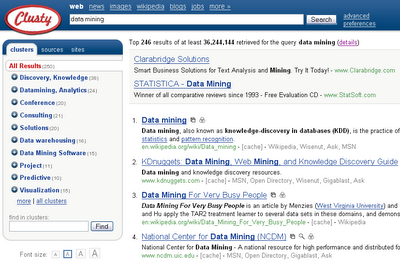The future of search engines
 Mining the web for information relevant to the user is the main task of search engines. According to a recent article on TechNewsWorld, Google will not be on the top forever. The author has interviewed the president of SiteSpect, a provider of search engine marketing and Web optimization technology, for details about future of search engines. According to him, in the future of search engines Google is no more on the top.
Mining the web for information relevant to the user is the main task of search engines. According to a recent article on TechNewsWorld, Google will not be on the top forever. The author has interviewed the president of SiteSpect, a provider of search engine marketing and Web optimization technology, for details about future of search engines. According to him, in the future of search engines Google is no more on the top.
This pessimist view of Google's future is supported by the fact that people are working on new search engines that provide different information to the user. According to Larry Kerschberg, a professor at George Mason University, complicated query such as "What is the best way to treat my cancer?" is the kind of questions that search engines should be able to answer tomorrow. Even if Google's role may be less important in a few years, it will certainly be in our everyday life with popular applications such as GMail and others.











